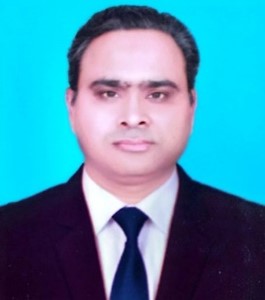Optimal Integration of Energy Storage and Conversion in Smart Grids
A special issue of Electronics (ISSN 2079-9292). This special issue belongs to the section "Power Electronics".
Deadline for manuscript submissions: 15 July 2025 | Viewed by 3494
Special Issue Editors
Interests: energy storage systems; smart grids; V2G
Special Issues, Collections and Topics in MDPI journals
Interests: power system optimization; control systems; power electronics; soft computing
Special Issues, Collections and Topics in MDPI journals
Special Issue Information
Dear Colleagues,
We are inviting submissions to a Special Issue of Electronics in the subject area of “Optimal Integration of Energy Storage and Conversion in Smart Grids”.
As smart grids continue to evolve, energy storage and conversion play an increasingly important role. Energy storage devices utilize various services, such as peak shaving, power quality improvement, network reliability, short-term energy supply, and improvements in power supply performance, to compensate for the power imbalance between the RES units and loads. In other words, microgrids (MGs) require an energy storage system (ESS) to solve mismatch problems and suit the power system’s requirements. The DC–DC converter (to act as a charger/discharger) associated with the battery in BESS controls the battery voltage and current by performing bucking/boosting operations. In order to coordinate the power-sharing among the heterogeneous energy storage devices spread out over the MG, various control strategies, such as centralized control methods and decentralized control approaches, have been developed for the BES units inside MGs.
Regardless of the significance of ESS technologies used in MG applications, they suffer from some limitations; namely, cost, difficulty of control, limited discharge time, and not being dispatchable without storage.
In addition, due to the intermittent nature of renewable energy resources, microgrid performance fluctuates. The integration of microgrids into the main grid poses a variety of technical and economic issues that may develop when microgrids are integrated into the main network. All of these issues result in frequency deviation, voltage regulation problems, voltage collapse, large investment, low-power quality, huge transmission loss, and so on.
Novel forms of energy storage and their integration into the grid are the focus of this Special Issue. In addition, the emerging methods/techniques to compensate for the above-mentioned problems, such as frequency deviation, voltage collapse, and low power quality due to the integration of energy storage devices or microgrids into the main grid, will be explored in this Issue.
Submission of multimedia with each article, if possible, is highly appreciated, as it significantly enhances the visibility, downloads, and citations of articles.
Dr. Irfan Ahmad Khan
Prof. Dr. Ghulam Abbas
Guest Editors
Manuscript Submission Information
Manuscripts should be submitted online at www.mdpi.com by registering and logging in to this website. Once you are registered, click here to go to the submission form. Manuscripts can be submitted until the deadline. All submissions that pass pre-check are peer-reviewed. Accepted papers will be published continuously in the journal (as soon as accepted) and will be listed together on the special issue website. Research articles, review articles as well as short communications are invited. For planned papers, a title and short abstract (about 100 words) can be sent to the Editorial Office for announcement on this website.
Submitted manuscripts should not have been published previously, nor be under consideration for publication elsewhere (except conference proceedings papers). All manuscripts are thoroughly refereed through a single-blind peer-review process. A guide for authors and other relevant information for submission of manuscripts is available on the Instructions for Authors page. Electronics is an international peer-reviewed open access semimonthly journal published by MDPI.
Please visit the Instructions for Authors page before submitting a manuscript. The Article Processing Charge (APC) for publication in this open access journal is 2400 CHF (Swiss Francs). Submitted papers should be well formatted and use good English. Authors may use MDPI's English editing service prior to publication or during author revisions.
Keywords
- smart grids
- network reliability
- frequency variations
- power fluctuation
- energy storage system (ESS)
- energy storage technologies
- renewable energy sources
- bidirectional power converter
- droop control strategy
- primary and secondary control
- reactive power compensation
- community energy storage
Benefits of Publishing in a Special Issue
- Ease of navigation: Grouping papers by topic helps scholars navigate broad scope journals more efficiently.
- Greater discoverability: Special Issues support the reach and impact of scientific research. Articles in Special Issues are more discoverable and cited more frequently.
- Expansion of research network: Special Issues facilitate connections among authors, fostering scientific collaborations.
- External promotion: Articles in Special Issues are often promoted through the journal's social media, increasing their visibility.
- e-Book format: Special Issues with more than 10 articles can be published as dedicated e-books, ensuring wide and rapid dissemination.
Further information on MDPI's Special Issue polices can be found here.






